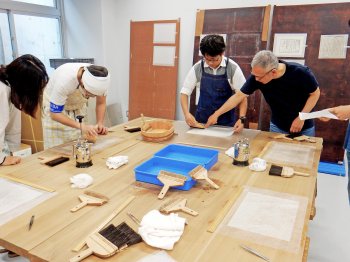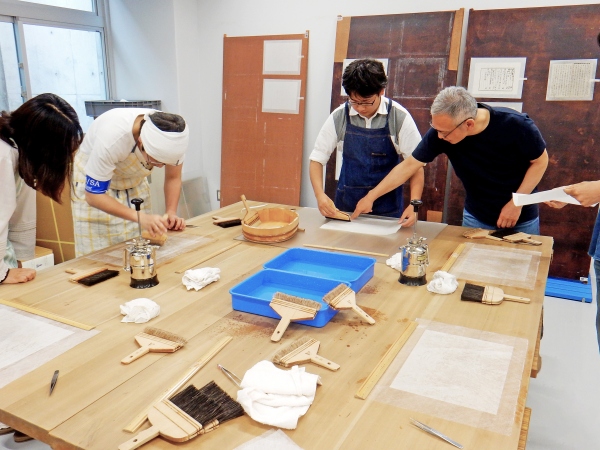Cooperation with Undergraduate, Graduate, and Certification Programs
Department of History and Folklore Studies in the Faculty of Cross-Cultural and Japanese Studies
-
 Cataloging Historical Documents
Cataloging Historical Documents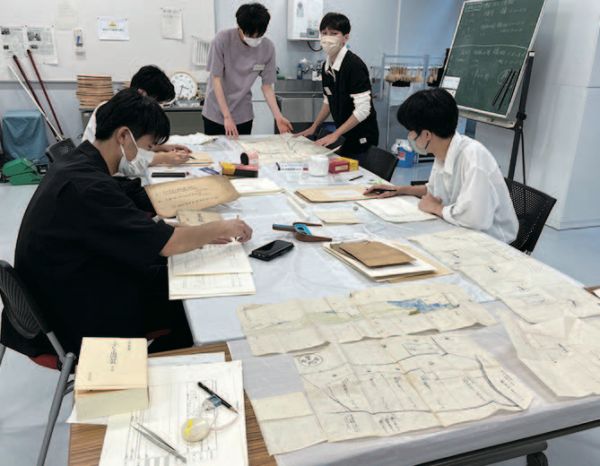
-
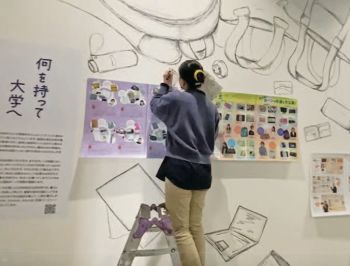 Illustrations on the walls by students of the Production Committee for “The Room of a KU Student” exhibition
Illustrations on the walls by students of the Production Committee for “The Room of a KU Student” exhibition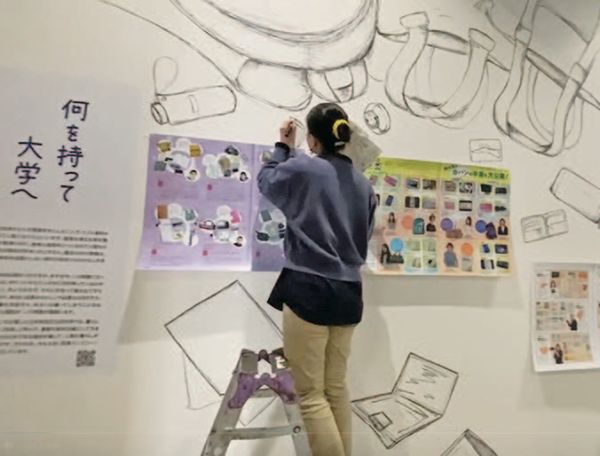
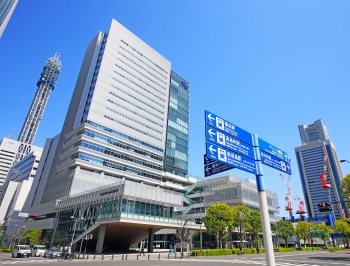
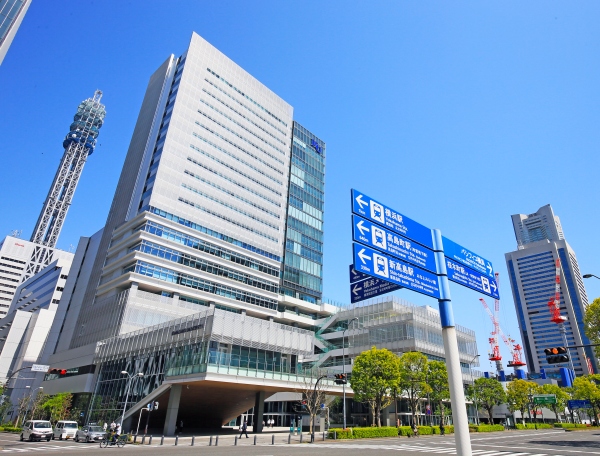
The Department of History and Folklore Studies, Faculty of Cross-Cultural and Japanese Studies, is grounded in the traditions of the Institute for the Study of Japanese Folk Culture and systematically linked to the existing program of the Graduate School of History and Folklore Studies, Kanagawa University Graduate School. Its programs facilitate student learning in the fields of “history,” “folklore studies,” and “culture vitalization.”
Distinctive Approaches to Learning
During the July 2019 Open Campus, our faculty members held events and hands-on classes for the Department of History and Folklore Studies.
Historical Documents / Mingu Study Experience / Educational Tour
Our faculty members Maeda Yoshihiko and Sekiguchi Hiroo held a tour as part of the educational activities of the Department of History and Folklore Studies, allowing visitors to browse and observe items in the institute’s collection. Participants were able to physically touch mingu (folk implements), observe ongoing training in the restoration of historical documents, decipher parts of texts written in kuzushiji (cursive script), and practice making koyori (twisted paper strings) that bind historical documents.
Historical Documents / Mingu Study Experience / Educational Tour
Hands-on Lessons
Maeda Yoshihiko and Yasumuro Satoru conducted hands-on lessons, hosted by the Department of History and Folklore Studies, titled “Youth of Heiankyo” and “Introduction to Folklore—Looking at ‘July Zoni Soup.’ ” The following video provides an introduction to Prof. Yasumuro’s class.
“Introduction to Folklore—Looking at ‘July Zoni Soup.’ ”
Graduate School of History and Folklore Studies, Kanagawa University
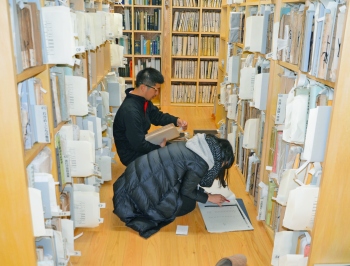
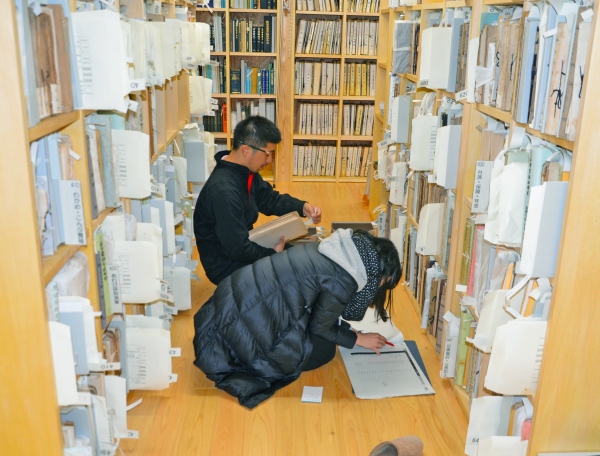
Kanagawa University Graduate School of History and Folklore Studies is an educational arm of the ISJFC. Here, education and research activities are carried out in close relation with the ISJFC and the Research Center for Nonwritten Cultural Materials.
Curator Course
In 2023, the Jomin Bunka Museum was established and the Institute was designated as a “facility equivalent to a museum” under Article 29 of the Museum Act. Since then, the Institute has accepted museum interns for museum training and has provided materials from its collection for classes and practical training to help students acquire qualifications.
